- Home
- Nick Hornby
Fever Pitch Page 2
Fever Pitch Read online
Page 2
I think we Arsenal fans know, deep down, that the football at Highbury has not often been pretty, and that therefore our reputation as the most boring team in the entire history of the universe is not as mystifying as we pretend: yet when we have a successful side much is forgiven. The Arsenal team I saw on that afternoon had been spectacularly unsuccessful for some time. Indeed they had won nothing since the Coronation and this abject and unambiguous failure was simply rubbing salt into the fans’ stigmata. Many of those around us had the look of men who had seen every game of every barren season. The fact that I was intruding on a marriage that had gone disastrously sour lent my afternoon a particularly thrilling prurience (if it had been a real marriage, children would have been barred from the ground): one partner was lumbering around in a pathetic attempt to please, while the other turned his face to the wall, too full of loathing even to watch. Those fans who could not remember the thirties (although at the end of the sixties a good many of them could), when the club won five Championships and two FA Cups, could remember the Comptons and Joe Mercer from just over a decade before; the stadium itself, with its beautiful art deco stands and its Jacob Epstein busts, seemed to disapprove of the current mob even as much as my neighbours did.
I’d been to public entertainments before, of course; I’d been to the cinema and the pantomime and to see my mother sing in the chorus of the White Horse Inn at the Town Hall. But that was different. The audiences I had hitherto been a part of had paid to have a good time and, though occasionally one might spot a fidgety child or a yawning adult, I hadn’t ever noticed faces contorted by rage or despair or frustration. Entertainment as pain was an idea entirely new to me, and it seemed to be something I’d been waiting for.
It might not be too fanciful to suggest that it was an idea which shaped my life. I have always been accused of taking the things I love – football, of course, but also books and records – much too seriously, and I do feel a kind of anger when I hear a bad record, or when someone is lukewarm about a book that means a lot to me. Perhaps it was these desperate, bitter men in the West Stand at Arsenal who taught me how to get angry in this way; and perhaps it is why I earn some of my living as a critic – maybe it’s those voices I can hear when I write. ‘You’re a WANKER, X.’ ‘The Booker Prize? THE BOOKER PRIZE? They should give that to me for having to read you.’
Just this one afternoon started the whole thing off – there was no prolonged courtship – and I can see now that if I’d gone to White Hart Lane or Stamford Bridge the same thing would have happened, so overwhelming was the experience the first time. In a desperate and percipient attempt to stop the inevitable, Dad quickly took me to Spurs to see Jimmy Greaves score four against Sunderland in a 5–1 win, but the damage had been done, and the six goals and all the great players left me cold: I’d already fallen for the team that beat Stoke 1–0 from a penalty rebound.
A Spare Jimmy Husband
ARSENAL v WEST HAM
26.10.68
On this, my third visit to Highbury (a goalless draw – I’d now seen my team score three times in four and a half hours), all the kids were given a free Soccer Stars album. Each page of the album was devoted to one First Division team, and contained fourteen or fifteen spaces in which to glue stickers of the players; we were also given a little packet of the stickers to start our collection off.
Promotional offers aren’t often described thus, I know, but the album proved to be the last crucial step in a socialisation process that had begun with the Stoke game. The benefits of liking football at school were simply incalculable (even though the games master was a Welshman who once memorably tried to ban us from kicking a round ball even when we got home): at least half my class, and probably a quarter of the staff, loved the game.
Unsurprisingly, I was the only Arsenal supporter in the first year. QPR, the nearest First Division team, had Rodney Marsh; Chelsea had Peter Osgood, Tottenham had Greaves, West Ham had the three World Cup heroes, Hurst, Moore and Peters. Arsenal’s best-known player was probably Ian Ure, famous only for being hilariously useless and for his contributions to the television series Quiz Ball. But in that glorious first football-saturated term, it didn’t matter that I was on my own. In our dormitory town no club had a monopoly on support and, in any case, my new best friend, a Derby County fan like his father and uncle, was similarly isolated. The main thing was that you were a believer. Before school, at breaktime and at lunchtime, we played football on the tennis courts with a tennis ball, and in between lessons we swapped Soccer Star stickers – Ian Ure for Geoff Hurst (extraordinarily, the stickers were of equal value), Terry Venables for Ian St John, Tony Hately for Andy Loch-head.
And so transferring to secondary school was rendered unimaginably easy. I was probably the smallest boy in the first year, but my size didn’t matter, although my friendship with the Derby fan, the tallest by several feet, was pretty handy; and though my performance as a student was undistinguished (I was bunged into the ‘B’ stream at the end of the year and stayed there throughout my entire grammar school career), the lessons were a breeze. Even the fact that I was one of only three boys wearing shorts wasn’t as traumatic as it should have been. As long as you knew the name of the Burnley manager, nobody much cared that you were an eleven-year-old dressed as a six-year-old.
This pattern has repeated itself several times since then. The first and easiest friends I made at college were football fans; a studious examination of a newspaper back page during the lunch hour of the first day in a new job usually provokes some kind of response. And yes, I am aware of the downside of this wonderful facility that men have: they become repressed, they fail in their relationships with women, their conversation is trivial and boorish, they find themselves unable to express their emotional needs, they cannot relate to their children, and they die lonely and miserable. But, you know, what the hell? If you can walk into a school full of eight hundred boys, most of them older, all of them bigger, without feeling intimidated, simply because you have a spare Jimmy Husband in your blazer pocket, then it seems like a trade-off worth making.
Don Rogers
SWINDON TOWN v ARSENAL
(at Wembley) 15.3.69
Dad and I went to Highbury another half a dozen times that season, and by the middle of March 1969, I had gone way beyond fandom. On matchdays I awoke with a nervous churning in the stomach, a feeling that would continue to intensify until Arsenal had taken a two-goal lead, when I would begin to relax: I had only relaxed once, when we beat Everton 3–1 just before Christmas. Such was my Saturday sickness that I insisted on being inside the stadium shortly after one o’clock, some two hours before the kick-off; this quirk my father bore with patience and good humour, even though it was frequently cold and from 2.15 onwards my distraction was such that all communication was impossible.
My pre-match nerves were the same however meaningless the game. That season Arsenal had blown all chance of the Championship by about November, a little later than usual; but this meant that in the wider scheme of things it scarcely mattered whether they won the games I went to see. It mattered desperately to me, however. In these early stages, my relationship with Arsenal was of an entirely personal nature: the team only existed when I was in the stadium (I can’t remember feeling especially devastated by their poor results away from home). As far as I was concerned, if they won the games I saw 5–0, and lost the rest 10–0, that would have been a good season, probably to be commemorated by the team travelling down the M4 to see me on an open-topped bus.
I made an exception for the FA Cup-ties; these I wanted Arsenal to win despite my absence, but we got knocked out 1–0 at West Brom. (I had been forced to go to bed before the result came through – the tie was played on a Wednesday night – and my mother wrote the score down on a piece of paper and attached it to my bookcase ready for me to look at in the morning. I looked long and hard: I felt betrayed by what she had written. If she loved me, then surely she could have come up with a better result than this.
Just as hurtful as the score was the exclamation mark she had placed after it, as if it were… well, an exclamation. It seemed as inappropriate as if it had been used to emphasise the death of a relative: ‘Gran died peacefully in her sleep!’ These disappointments were still entirely new to me, of course, but like all fans, I’ve come to expect them now. At the time of writing, I have felt the pain of FA Cup defeat twenty-two times, but never as keenly as that first one.)
The League Cup I’d never really heard of, mainly because it was a midweek competition and I hadn’t yet been allowed to attend a midweek game. But when Arsenal reached the final, I was prepared to accept it as a consolation for what had seemed to me to be a heartbreakingly poor season, although it had in fact been pretty run-of-the-mill for the sixties.
So Dad paid a tout way over the odds for a pair of tickets (I never found out exactly how much, but later, with justified anger, he led me to understand that they’d been very expensive) and on Saturday, 15th March (‘BEWARE THE IDES OF MARCH’ was the headline in the Evening Standard’s special colour supplement), I went to Wembley for the first time.
Arsenal were playing Swindon Town, a Third Division team, and no one seemed to have any real doubts that Arsenal would win the game, and therefore their first cup for sixteen years. I wasn’t so sure. Silent in the car all the way there, I asked Dad on the steps up to the stadium whether he was as confident as everyone else. I tried to make the question conversational – sports chatter between two men on a day out – but it wasn’t like that at all: what I really wanted was reassurance from an adult, a parent, my father, that what I was about to witness wasn’t going to scar me for life. ‘Look,’ I should have said to him, ‘when they’re playing at home, in an ordinary League game, I’m so frightened they’ll lose that I can’t think or speak or even breathe, sometimes. If you think Swindon have any kind of chance at all, even a chance in a million, it’s best if you take me home now, because I don’t think I’d be able to cope.’
If I had come out with that, then it would have been unreasonable of my father to make me go inside the stadium. But I simply asked him, in an assumed spirit of idle curiosity, who he thought would win the game, and he said he thought Arsenal would, three or four nothing, the same as everyone else did, and so I got the reassurance I was looking for; but I was scarred for life anyway. Like my mother’s exclamation mark, my father’s blithe confidence later seemed like a betrayal.
I was so scared that the Wembley experience – a crowd of a hundred thousand, the huge pitch, the noise, the sense of anticipation – passed me by completely. If I noticed anything about the place at all it was that it wasn’t Highbury, and my sense of alienation simply added to my unease. I sat shivering until Swindon scored shortly before half-time, and then the fear turned to misery. The goal was one of the most calamitously stupid ever given away by a team of professionals: an inept back-pass (by Ian Ure, naturally), followed by a missed tackle, followed by a goalkeeper (Bob Wilson) slipping over in the mud and allowing the ball to trickle over the line just inside the right-hand post. For the first time, suddenly, I became aware of all the Swindon fans sitting around us, with their awful West Country accents, their absurd innocent glee, their delirious disbelief. I hadn’t ever come across opposing fans before, and I loathed them in a way I had never before loathed strangers.
With one minute remaining in the game, Arsenal equalised, unexpectedly and bizarrely, a diving header from a rebound off the goalkeeper’s knee. I tried not to weep with relief, but the effort was beyond me; I stood on the seat and yelled at my father, over and over again, ‘We’ll be all right now, won’t we? We’ll be all right now!’ He patted me on the back, pleased that something had been rescued from the dismal and expensive afternoon, and told me that yes, now, finally, everything would be OK.
It was his second betrayal of the day. Swindon scored twice more in extra time, one a scrappy goal from a corner, the other from Don Rogers after a magnificent sixty-yard run, and it was all too much to bear. When the final whistle went, my father betrayed me for the third time in less than three hours: he rose to his feet to applaud the extraordinary underdogs, and I ran for the exit.
When my father caught up with me he was furious. He delivered his ideas on sportsmanship with great force (what did I care about sportsmanship?), marched me to the car, and we drove home in silence. Football may have provided us with a new medium through which we could communicate, but that was not to say that we used it, or that what we chose to say was necessarily positive.
I don’t remember Saturday evening, but I know that on the Sunday, Mother’s Day, I elected to go to church rather than stay at home, where there was a danger that I would watch the highlights of the game on The Big Match and push myself over the edge into a permanent depressive insanity. And I know that when we got to church, the vicar expressed his pleasure in seeing such a large congregation given the competing temptations of a Cup Final on TV, and that friends and family nudged me and smirked. All this, however, was nothing compared to what I knew I would get at school on Monday morning.
For twelve-year-old boys permanently on the lookout for ways in which to humiliate their peers, opportunities like this were too good to miss. When I pushed open the door to the prefab, I heard somebody shout ‘Here he is!’, and I was submerged under a mob of screaming, jeering, giggling boys, some of whom, I noted darkly before I was knocked to the floor, didn’t even like football.
It may not have mattered much in my first term that I was an Arsenal fan, but in my second it had become more significant. Football was still, in essence, a unifying interest – nothing had changed in that way. But as the months passed, our allegiances had become much more defined, and we were much quicker to tease. This was easily anticipated, I suppose, but on that dreadful Monday morning painful nonetheless. As I lay in the grammar school dirt it occurred to me that I had made a grotesque mistake; it was my fervent wish that I could turn back the clock and insist that my father took me, not to Arsenal v Stoke, but to a deserted hotel dining room or the zoo. I didn’t want to go through this once a season. I wanted to be with the rest of the class, trampling the hell out of some other poor heartbroken kid – one of the swots or weeds or Indians or Jews who were habitually and horribly bullied. For the first time in my life I was different and on my own, and I hated it.
I have a photograph from the game played on the Saturday after the Swindon tragedy, away at QPR. George Armstrong is just picking himself up, having scored the winner in a 1–0 win; David Court is running towards him, his arms triumphantly aloft. In the background you can see Arsenal fans on the edge of the stand, silhouetted against a block of flats behind the ground, and they too are punching the sky. I couldn’t understand anything I saw in the picture at all. How could the players care, after the way they had humiliated themselves (and, of course, me) seven days – seven days – before? Why would any fan who had suffered at Wembley the way I had suffered stand up to cheer a nothing goal in a nothing match? I used to stare at this photo for minutes at a time, trying to detect somewhere within it any evidence of the trauma of the previous week, some hint of grief or of mourning, but there was none: apparently everyone had forgotten except me. In my first season as an Arsenal fan I had been betrayed by my mother, my father, the players and my fellow supporters.
England!
ENGLAND v SCOTLAND
May 1969
Although the temptation to plunge into a warm bath containing dissolved essence of Kenneth Wolstenholme is always with me, I know in my heart that in the late sixties and early seventies, some things were better and some things were worse. The England team, of course, was better then: still the world champions, packed with great players, and looking as though they might be able to retain the World Cup in Mexico the following year.
I was proud of England, delighted that my father was taking me to see them play in a big game under floodlights at Wembley (and going back there so soon after the League Cup Final was therapeutic, a successful e
xorcism of demons that would otherwise have plagued me for years). And though there is no doubt that Colin Bell, Francis Lee and Bobby Moore were better than Geoff Thomas, Dennis Wise and Terry Butcher, it wasn’t just the comparative quality that enabled me to feel unambiguous about that England side. The ambiguity came with age: by the time I was sixteen or seventeen, I knew better than the England manager.
A critical faculty is a terrible thing. When I was eleven there were no bad films, just films that I didn’t want to see, there was no bad food, just Brussels sprouts and cabbage, and there were no bad books – everything I read was great. Then suddenly, I woke up in the morning and all that had changed. How could my sister not hear that David Cassidy was not in the same class as Black Sabbath? Why on earth would my English teacher think that The History of Mr Polly was better than Ten Little Indians by Agatha Christie? And from that moment on, enjoyment has been a much more elusive quality.
But in 1969, as far as I was concerned, there was no such thing as a bad England player. Why would Sir Alf pick someone who wasn’t up to the job? What would be the point? I took it on trust that the eleven players who destroyed Scotland that night – two goals each for Hurst and Peters, Colin Stein replying for the Scots – were the best in the country. (Sir Alf had ignored everyone from Arsenal, which simply confirmed that he knew what he was doing.) And anyway the absence of any live football on television meant that we often didn’t know who was much good or not: the highlights merely showed good players scoring goals, rather than bad players missing them.

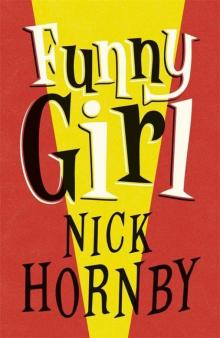 Funny Girl
Funny Girl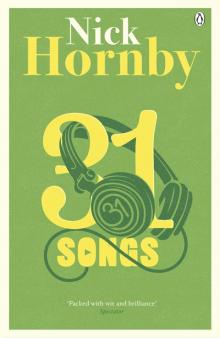 31 Songs
31 Songs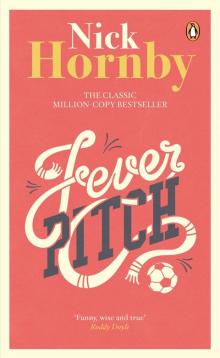 Fever Pitch
Fever Pitch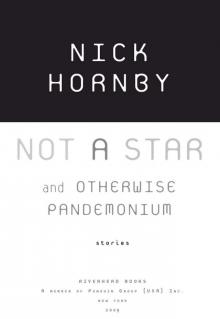 Not a Star and Otherwise Pandemonium
Not a Star and Otherwise Pandemonium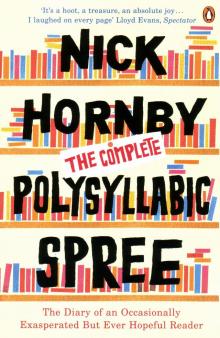 The Complete Polysyllabic Spree
The Complete Polysyllabic Spree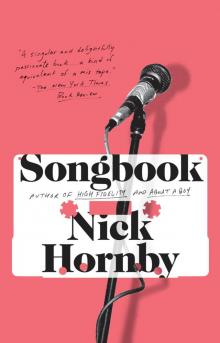 Songbook
Songbook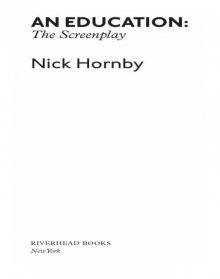 An Education
An Education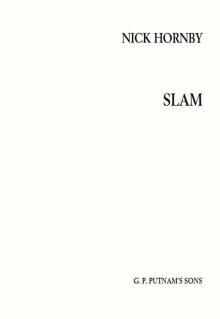 Slam
Slam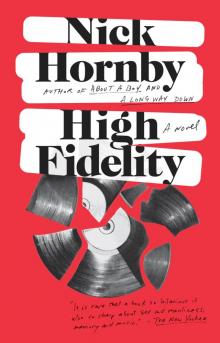 High Fidelity
High Fidelity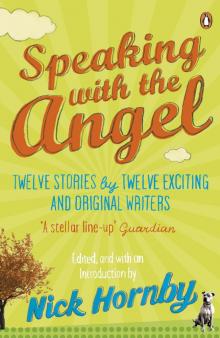 Speaking With the Angel
Speaking With the Angel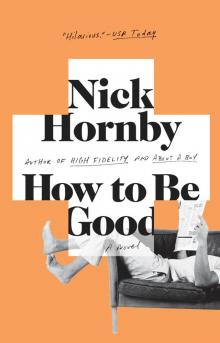 How to Be Good
How to Be Good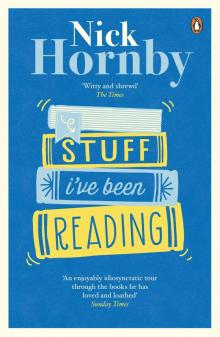 Stuff I've Been Reading
Stuff I've Been Reading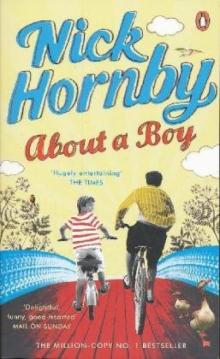 About a Boy
About a Boy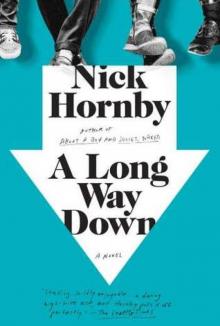 A Long Way Down
A Long Way Down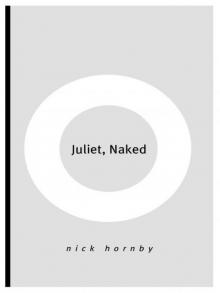 Juliet, Naked
Juliet, Naked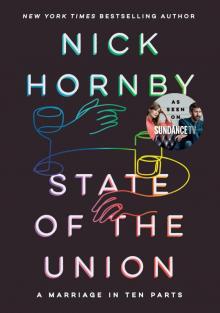 State of the Union
State of the Union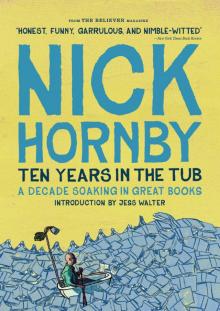 Ten Years in the Tub: A Decade Soaking in Great Books
Ten Years in the Tub: A Decade Soaking in Great Books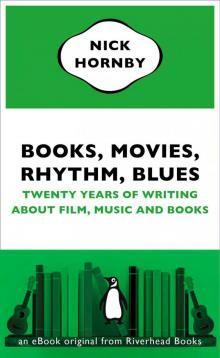 Books, Movies, Rhythm, Blues: Twenty Years of Writing About Film, Music and Books
Books, Movies, Rhythm, Blues: Twenty Years of Writing About Film, Music and Books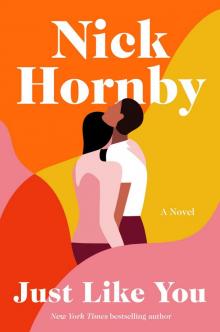 Just Like You
Just Like You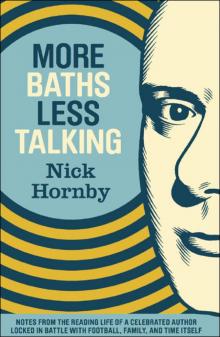 More Baths Less Talking
More Baths Less Talking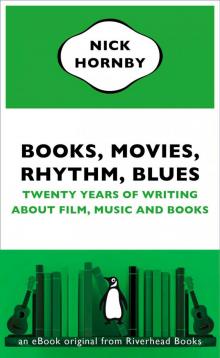 Books, Movies, Rhythm, Blues
Books, Movies, Rhythm, Blues